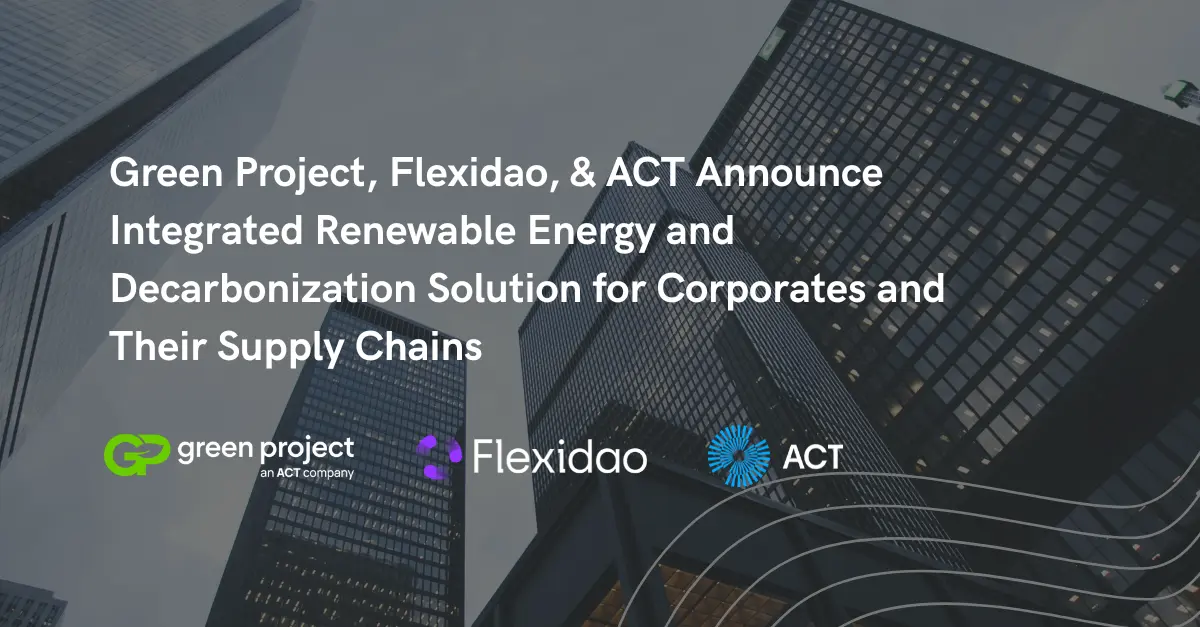Streamlining Energy and Reporting: A Comprehensive Guide
Streamlining Energy and Reporting: A Comprehensive Guide
Discover how Flexidao's solutions make energy and carbon reporting effortless. Achieve compliance and sustainability goals with ease.
In an era where accurate sustainability disclosures are critical for organizational success, precise energy emissions reporting has emerged as a legal necessity for many businesses. Regulatory bodies like the Securities and Exchange Commission (SEC) in the US and the Corporate Sustainability Reporting Directive (CSRD) in the EU are mandating companies to report on their environmental impact, with a specific focus on greenhouse gas emissions. Organizations that fail to comply with such mandates can suffer significant financial penalties, reputational damage, and even operational restrictions.
Detailed energy emissions reporting transcends mere compliance. It fosters transparency with stakeholders, such as investors and environmentally conscious consumers. It facilitates efficient energy management, potentially leading to cost reductions and a minimized environmental impact. In short, comprehensive energy emissions reporting allows your organization to potentially improve financial performance as well as significantly enhance reporting transparency to enable the generation of accurate forecasts and facilitate the implementation of necessary adjustments or strategic decisions.
This blog will help you understand why and how streamlined energy and carbon reporting frameworks can benefit your organization in this new regulatory landscape and expand on how you can streamline the process of meeting both mandatory disclosures and achieving your sustainability goals.
Understanding Streamlined Energy and Carbon Reporting
Transparency around renewable energy usage has become an even more pressing task for businesses to focus on. By optimizing your organization’s energy and carbon reporting processes, you can ensure compliance with these regulations, and take advantage of various benefits offered through these sustainability frameworks, all while reducing costs and increasing overall productivity. Below is an overview of two key mandates that will significantly impact companies:
1. The Corporate Sustainability Reporting Directive (CSRD):
CSRD is an EU directive that dictates sustainability reporting requirements for businesses that operate within the region. The EU's CSRD takes a phased approach, requiring large companies to report starting in 2024, with small and medium-sized enterprises (SMEs) following suit by 2026. Some of the sustainability factors companies will need to report on include resource usage, pollution, and greenhouse gas emissions, all of which require extensive data collection, analysis, and comprehensive reporting systems.
2. The SEC's Climate Disclosure Rule:
Over in the US, the SEC implemented a regulation mandating climate-related disclosures for publicly traded companies. This phased rule requires initial reporting of climate risks within annual reports starting November last year. Publicly traded companies in the US must now share material climate-related risks and opportunities that affect their business. In a similar vein to the CSRD, this translates to information regarding greenhouse gas emissions, physical climate risks, and the impact of climate change on their overall business strategy and financial performance. Both mandates necessitate integrating sustainability considerations into overall business strategy.
The Importance of Accurate Energy Emissions Reporting
Ensuring that your carbon emissions reporting is streamlined and accurate can help your organization avoid hefty financial penalties due to non-compliance. For instance, under the EU Emissions Trading System (ETS), companies can be fined up to €100 per tonne of carbon dioxide emissions not covered by a permit on top of additional non-compliance fines.
An increased focus on sustainability and energy emissions reporting allows businesses to reliably track progress over time and accordingly adjust goals and targets. This not only helps optimize internal processes and reduces unnecessary wastage of valuable resources but also improves stakeholder trust, and transparency and bolsters your overall reputation. Granular analysis of energy and carbon data empowers procurement teams to identify optimization opportunities, leading to significant cost savings on energy bills.
Verifiable energy emissions data can also be shared with key stakeholders, customers, and investors to showcase commitment to transparency and integrity. Your organization can leverage this information to avoid greenwashing allegations and limit potential backlash in the future, thereby enhancing brand image towards environmentally conscious consumers.
Navigating Energy Emissions Reporting
For companies that are striving to minimize their environmental impact, a strategic approach to energy emissions reporting is crucial. Below, we outline the key steps that can help you traverse the complexities of this process and maximize its benefits:
- Validate Claims with Relevant Data
To keep in line with mandatory compliance regulations, companies need to offer quantifiable and relevant data. Measurable goals are also a much easier way to evaluate how effective different emission-based policies and decision-making processes are.
- Digitize Manual Processes to Avoid Room for Manual Error
The energy reporting formats and methodologies your organization uses to evaluate energy and emission data should remain consistent over time. This will allow your organization to meaningfully map how your sustainability initiatives have impacted your efficiency and productivity using historical data points.
- Have a Single Source of Truth
A centralized platform eliminates the need for juggling siloed data. It is a central hub for all your electricity contracts, meter data, and environmental certificate information. This holistic view provides your organization with in-depth oversight of its entire clean energy portfolio and prevents information from getting lost across multiple spreadsheets and platforms.
How Flexidao Simplifies Your Energy Emissions Reporting
Monitoring, managing, and reporting your carbon footprint and energy emissions data in accordance with constantly evolving industry regulations can be time-consuming and overwhelming.
Flexidao is a powerful, centralized platform that can automatically keep track of your sustainability initiative and emissions data over time. It streamlines further decision-making processes by representing large amounts of data with straightforward visualizations and can automatically ensure your organization is not violating key environmental initiatives or regulations like SEC, CDP, or RE100.
Flexidao is the perfect tool to take your energy and energy emissions reporting to the next level.
Optimize Your Energy Management Portfolio Today!
Take the next step towards optimizing your energy management portfolio with Flexidao. Our platform is designed to make energy portfolio management easier than ever before through streamlined reporting, user-friendly visualizations, and automated reporting processes.
Contact us today to learn more about how we can streamline your energy emissions reporting.


.webp)





